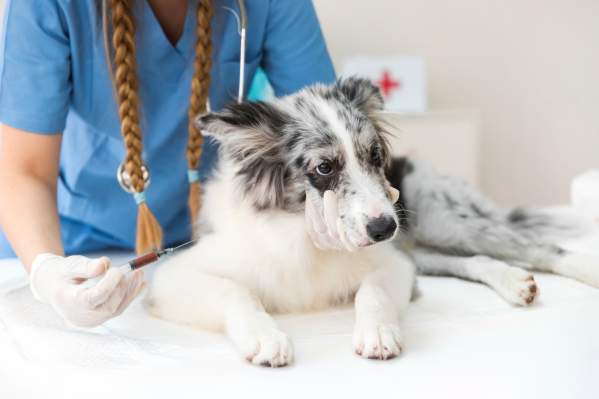Newsflash: Vaccines are essential for your dog’s health. And if you live within the five boroughs of New York City, the rabies vaccine is a must.
“The rabies vaccination is the only vaccine that is required by state law — not just in New York state, but basically in every state,” explains Nikita Singhani, DVM, veterinarian at West Chelsea Veterinary in New York City.
But Why the Urgency for NYC-Dwelling Pups?
So far in 2019, the New York City Department of Health and Mental Hygiene has reported twelve confirmed cases of rabid raccoons (and one cat) across the five boroughs. While those numbers may not seem all that staggering, the risk is still urgent, as over 600 animals — raccoons, skunks, bats, and even cats — have tested positive for rabies since surveillance began back in 1992.
What’s more, these are the first rabid raccoons to be identified in Manhattan since 2011, after the Department of Health made extensive efforts to provide the rabies vaccine to about 500 raccoons residing around Central Park.
The Importance of Vaccination
Staying on top of your dog’s vaccination schedule can provide them with immunity, shorten the duration of an illness, and even prevent certain diseases altogether, according to the American Veterinary Medical Association (AMVA).
What’s more, “Rabies is zoonotic, meaning that it can be spread from an animal to a person,” adds Dr. Singhani. So vaccinating your pet helps reduce your risk of acquiring rabies, as well — which is an important precautionary measure to take, as when a human is infected with rabies, once symptoms start, it can lead to death in just a matter of days.
“That’s why we have annual exams and send out reminders, to make sure you know when your pet is due for vaccines and come in at the appropriate time,” says Singhani.
How to Lower Your Dog’s Risk of Rabies
On top of getting your dog vaccinated, the Department of Health recommends keeping your pup on a leash whenever you’re outdoors, and avoid leaving Fido unattended to help minimize the risk of exposure to rabies.
“It’s really just being aware of your surroundings,” says Singhani. “Make sure you’re seeing who your pet is interacting with, and keep a close eye on them.”
And if your dog does come into contact with a potentially rabid animal, be sure to contact your veterinarian right away. “If your dog gets into a tussle with raccoon, they’ll get another booster for the rabies vaccine as well,” adds Singhani.
Meanwhile, if you’re unsure of when your dog last had their rabies vaccine, contact your vet, and schedule an appointment if needed to keep your dog up to date on their vaccinations.
